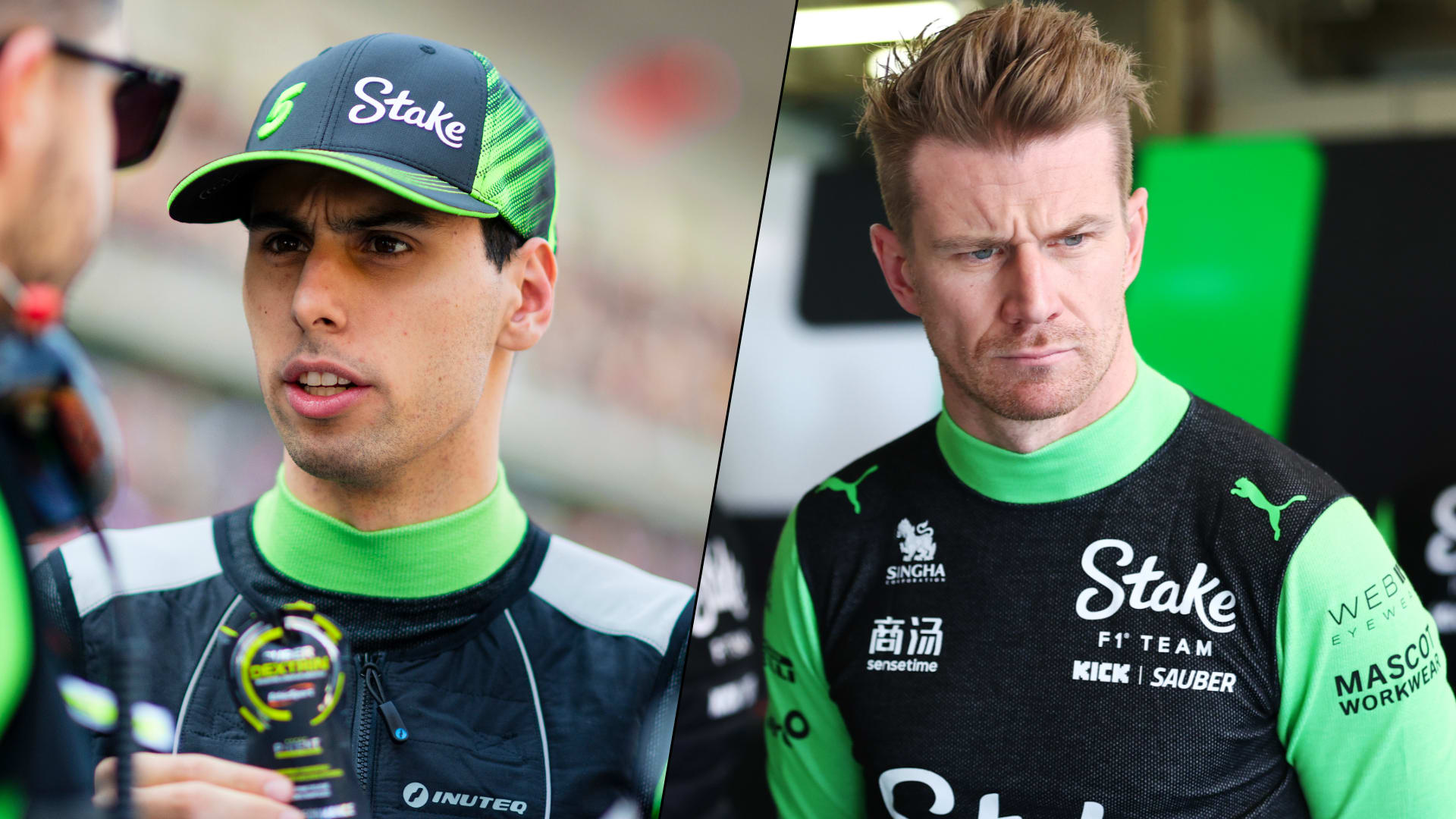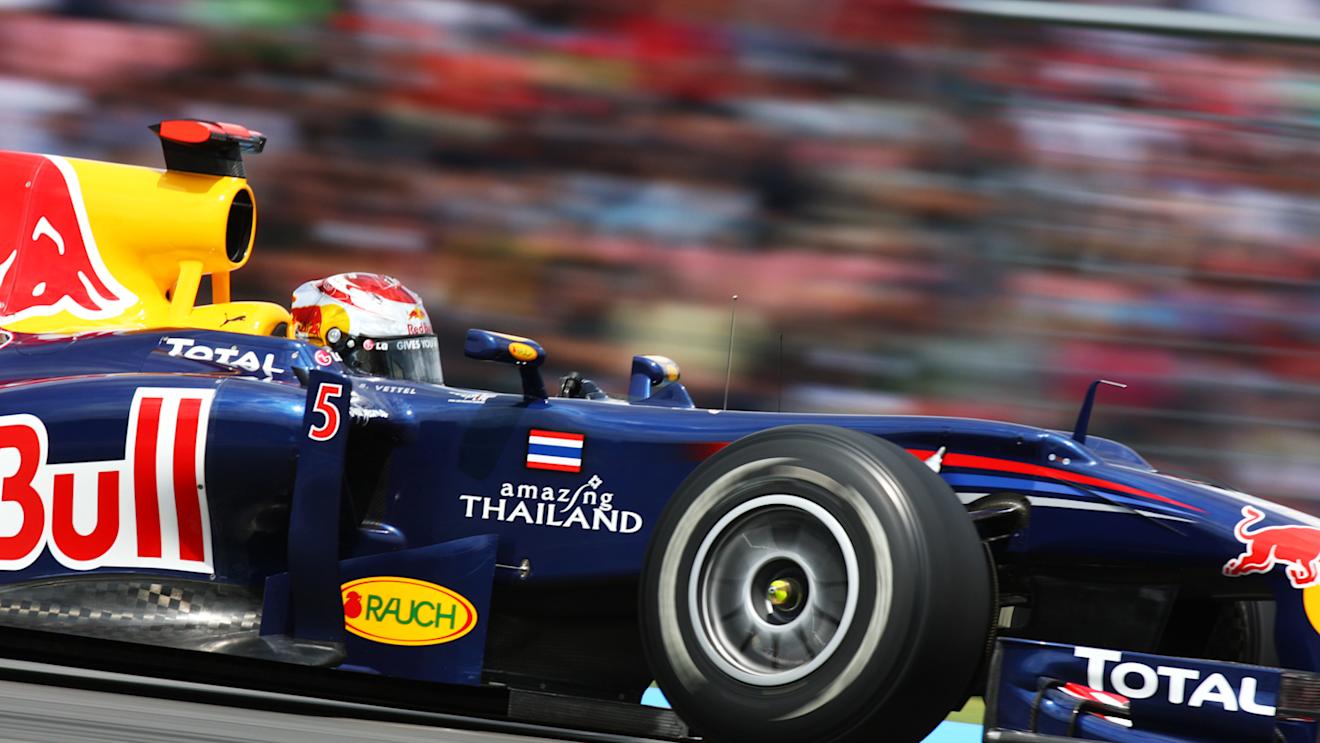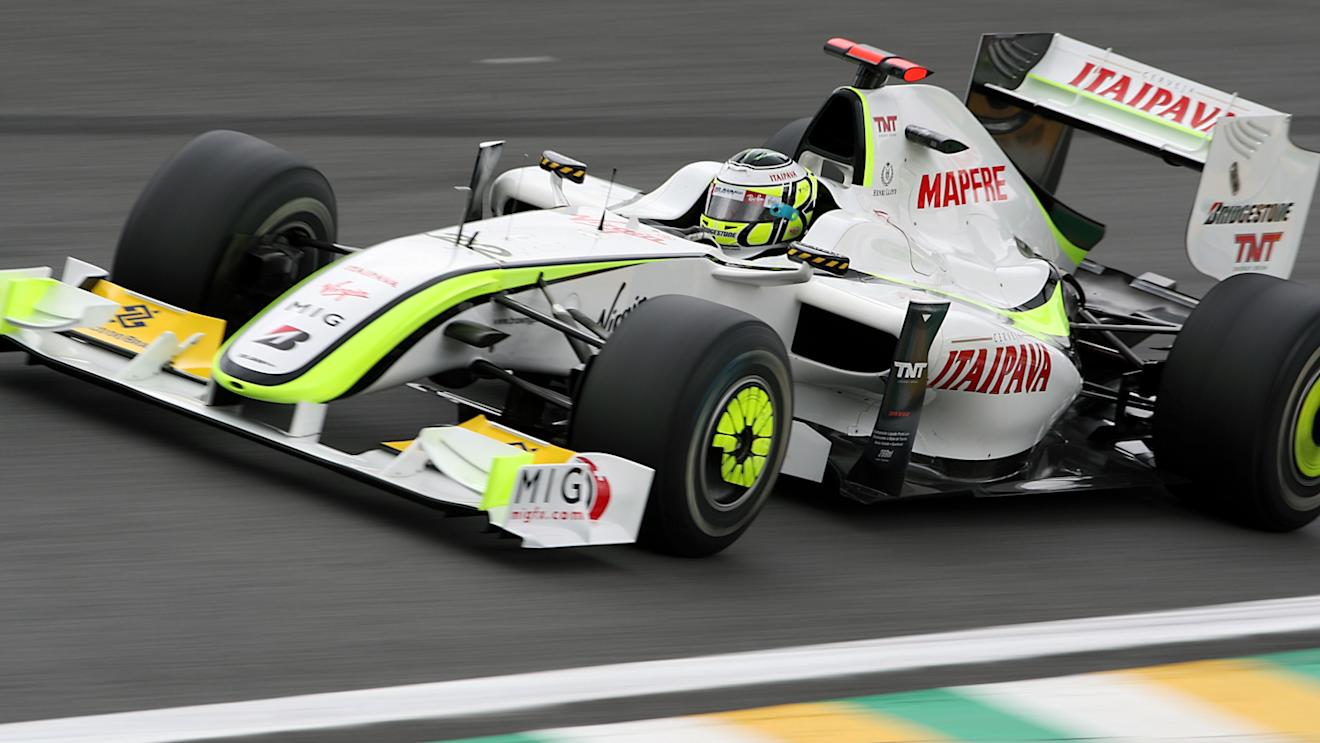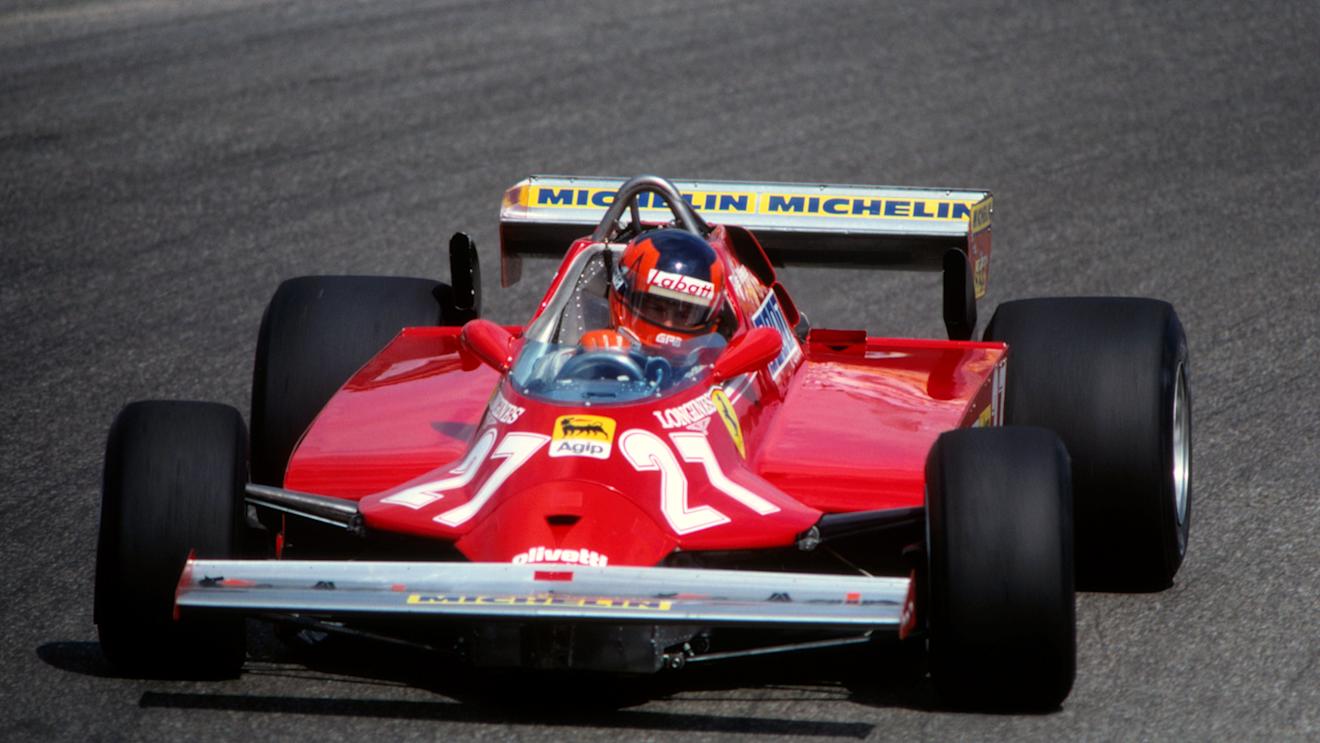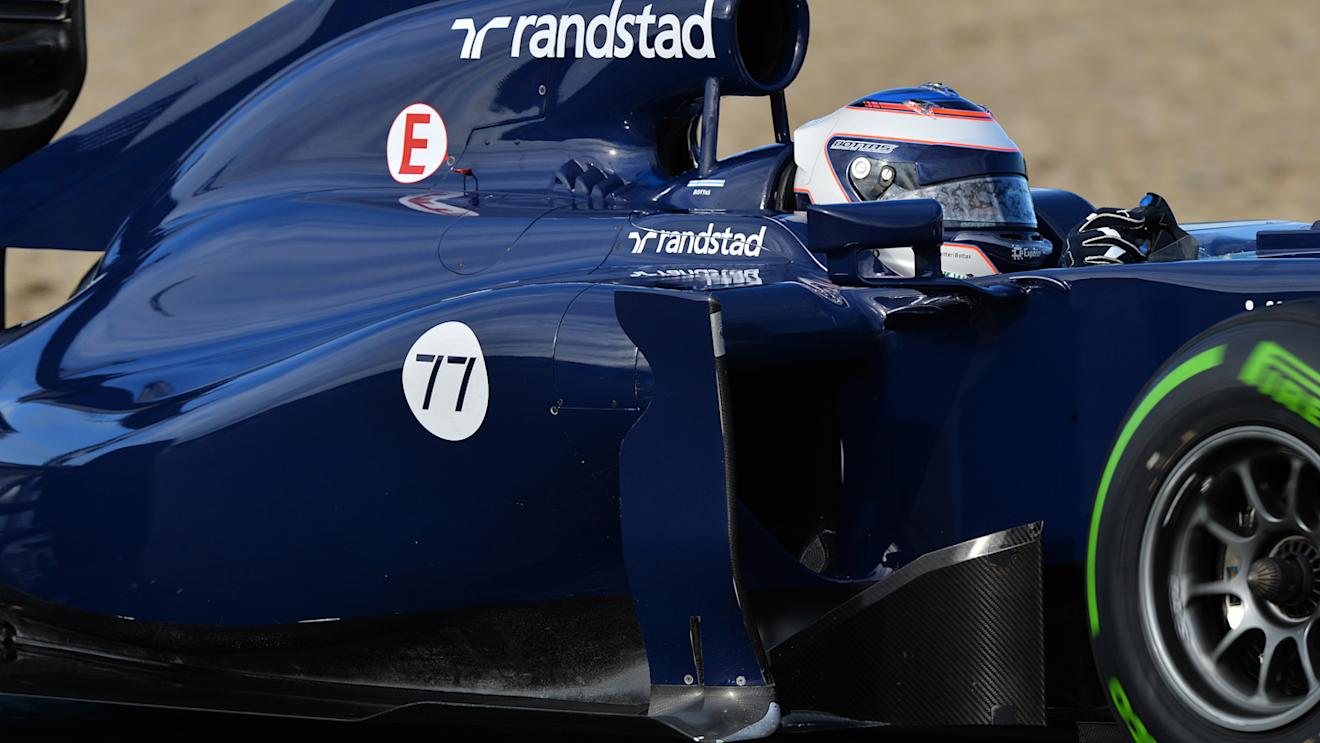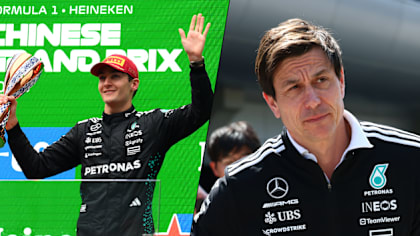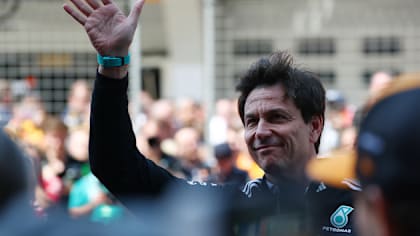1 / 4
Feature
What's in a number? The truth behind the drivers' new digits
For the past 18 years, the numbers that each team carries on their cars has been determined by constructors’ championship results. This season, however, each driver has been allowed to pick a race number that they’ll then use for the rest of their careers.
But how did the current Formula One grid arrive at the digits that will become part of their identity? Ahead of the season opener in Australia, we delve into the details…
Sebastian Vettel - 1 (and 5)
As the reigning world champion, Vettel had the option to continue carrying the prestigious number one on his car, something he duly accepted. Should he fail to claim a fifth consecutive championship title in 2014, however, the German will revert to his chosen career number: five. Vettel had the number five on his Red Bull car in 2010 - the year he won his first championship - and in 2001 when he was racing karts.
Daniel Ricciardo - 3
Whereas the previous Australian incumbent at Red Bull was, for better or for worse, associated with the number two, the latest Aussie has plumped to carry the number three. “It was my first ever number in karting and I was also a fan of (late NASCAR racer) Dale Earnhardt,” Ricciardo has said.
Lewis Hamilton - 44
Like the majority of F1 drivers, the Mercedes star began his racing career in karting, and it’s from there that the Hamilton has plucked his new (or should that be old?) number. Hamilton ran the number 44 when he won the cadet class of the British karting championship in 1995.
Nico Rosberg - 6
Why did the German choose number six? Well, as he confirmed on his Twitter account, it’s his future wife's and his dad's lucky number. “It has got to work for me too!” he joked. If the number is as lucky for Nico as it was for his father he’ll be smiling - Keke Rosberg won the 1982 world championship with the number six on his Williams.
Fernando Alonso - 14
Like rival Lewis Hamilton, the Spaniard has turned to his karting days for the inspiration behind his new number. “It has always brought me luck, dating back to 14th July 1996 when, at the age of 14, I won the world championship in a kart that had the number 14. Let’s see if it will still bring me luck.”
Kimi Raikkonen - 7
Last year Raikkonen carried the number seven to fifth place in the drivers’ championship and the Finn has since decided to stick with the number for the rest of his career. Like many drivers, he's even added his new digit to his helmet design. Marussia’s Jules Bianchi was also keen on the number, but Raikkonen got the nod by virtue of his higher championship finish in 2013.
Romain Grosjean - 8
The Lotus driver took to Twitter to express his delight at securing his first number choice: eight (or #r8main as he put it). Like former team mate Raikkonen, Grosjean is staying with the number he ran in 2013, his most successful season to date. But the number has more significance for the Frenchman than that. “My wife was born the 8th of December, we started dating in 2008 and to my eyes my son is the 8th wonder of the world,” he said on his Facebook page.
Pastor Maldonado - 13
Racing drivers can be a superstitious lot, but clearly Pastor Maldonado is not a triskaidekaphobe because he’s opted to race with the number 13 - a figure considered unlucky in many countries (though, it must be pointed out, lucky in others). The superstition surrounding the number 13 is thought to date back to pre-war racing and has generally been avoided in F1 competition. The only driver to have entered a world championship Grand Prix with 13 on his car was Mexican racer Moises Solana, whose BRM carried the number in his home race in 1963. Was it unlucky for him? Perhaps - he qualified 11th and was the last classified finisher (also in 11th) after his engine blew with eight laps to go. Let’s hope the number proves luckier for Maldonado who says it has a long history in Venezuelan sport…
Jenson Button - 22
Like many of his compatriots, Button has opted for a race number associated with a good time in his career. In the Englishman’s case, that’s 22 - the number that adorned his Brawn GP car during his 2009 championship-winning season. Coincidentally, 22 was also on Lewis Hamilton’s McLaren during his 2008 title run.
Kevin Magnussen - 20
The Dane comes to F1 fresh from winning the Formula Renault 3.5 title in 2013 with the number 20 on his car, so it’s rather appropriate that he’ll carry the number in his debut season with McLaren in 2014.
Nico Hulkenberg - 27
The number 27 is perhaps one of the most evocative in Formula One history, having become associated with Ferrari’s swashbuckling hero Gilles Villeneuve and latterly with another Scuderia favourite, Jean Alesi. World champions Ayrton Senna, Alain Prost, Alan Jones and Nigel Mansell all also carried the number at different points during their careers, so Hulkenberg is joining an elite club. According to the German, it’s simply “a cool number”.
Sergio Perez - 11
Like Hamilton and Alonso, Perez has chosen to spend the rest of his career carrying the number he used in the early stages of his career. “I always had 11 in karting and actually even my email address has 11 in it,” revealed the Mexican recently.
Adrian Sutil - 99
The FIA allowed drivers to choose a number between two and 99 and whilst no one plumped for the lower number, Sutil has grabbed the highest. The number 99 was featured in the world championship before, at the 1951 Indianapolis 500 on the car of race winner Lee Wallard. However, as that race was not run to F1 rules, Sutil will have the honour of being the first person to race with it on a Grand Prix car.
Esteban Gutierrez - 21
The Mexican kept things simple when it came to choosing his new race number. “21 - my lucky number,” he Tweeted. You can’t argue with that. Coincidentally, 21 was also Gutierrez’s age when he started in F1 racing.
Jean-Eric Vergne - 25
The number 25 was the Frenchman’s first choice as he was born on April 25. He also carried the number during his earliest days in karting.
Daniil Kvyat - 26
In a stroke of strange coincidence, Vergne’s Russian team mate Kvyat was born on April 26, so the Toro Rosso youngster has opted for that number. It means that the Italian team are one of only two squads to retain consecutive numbering. “I also competed in my first karting event in Russia with that number,” said Kvyat. “But there’s not much history behind it and I’m looking forward to making something of that number as I start my F1 career.”
Felipe Massa - 19
Massa’s title success in Euro Formula 3000 in 2001 was significant - it earned the Brazilian an F1 test with Sauber. The rest, as they say, is history. The number he used in 2001? 19, a number his uncle had used when racing and one that young Felipe adopted in karting. Perhaps it’s no surprise that Massa has claimed the number for his 2014 championship challenge with Williams.
Valtteri Bottas - 77
The Finn has gone for number 77 after floating the idea on Twitter with the hashtag ‘BO77AS’. We’ve got to hand it to him - he was clearly thinking outside the box.
Jules Bianchi - 17
The Frenchman was perhaps the unluckiest driver in the number stakes. Bianchi’s three choices were 7, 27 and 77, but all were taken by drivers who finished above him in the 2013 standings. Instead, the Marussia man will use 17.
Max Chilton - 4
Like Williams’ Valtteri Bottas, Chilton has opted to use a number which works as a substitute letter. So, on Twitter at least, Chilton is no longer MAX, but M4X.
Kamui Kobayashi - 10
The popular Japanese driver made his Formula One racing debut with Toyota back in 2009. Guess which number was on his car? That’s right, the number 10.
Marcus Ericsson - 9
With Kobayashi choosing 10 it was particularly apt that rookie team mate Ericsson plumped for number 9, a digit he simply likes. It means that Caterham join Toro Rosso as the only teams that are running consecutive numbers.
YOU MIGHT ALSO LIKE
Podcast BEYOND THE GRID: Pierre Gasly on trusting the Alpine process, his ambitious victory target and life outside F1
News Wolff hails Russell as one of 'absolute top three' drivers in F1 after '10 out of 10' performance in China
News Wolff 'excited' for Mercedes’ future as Silver Arrows ‘clearly the second fastest team’ in China
FeatureF1 Unlocked Crypto.com Overtake of the Month – Vote for Your Favourite Move Now!
